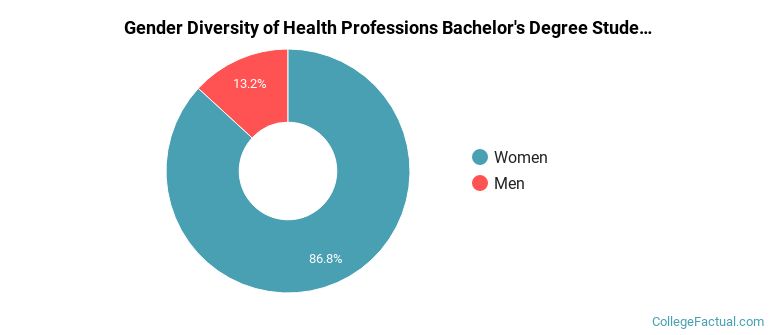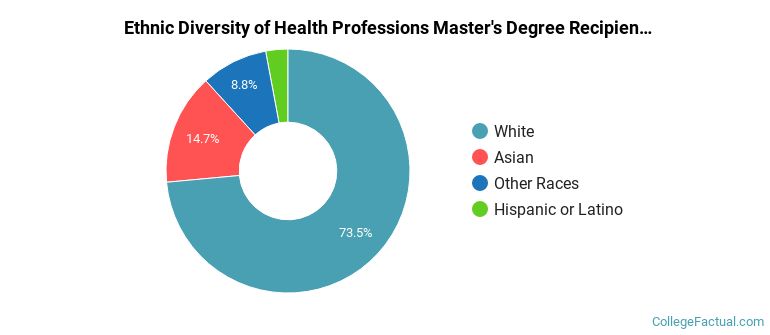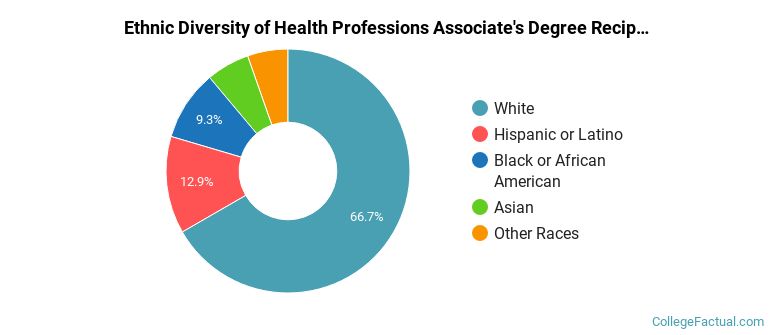 by our College Data Analytics Team
by our College Data Analytics TeamGo directly to any of the following sections:
PA College is in the top 10% of the country for health professions. More specifically it was ranked #102 out of 1,931 schools by College Factual. It is also ranked #6 in Pennsylvania.
During the 2021-2022 academic year, Pennsylvania College of Health Sciences handed out 152 bachelor's degrees in health professions. This is a decrease of 9% over the previous year when 167 degrees were handed out.
In 2022, 25 students received their master’s degree in health professions from PA College. This makes it the #815 most popular school for health professions master’s degree candidates in the country.
In addition, 2 students received their doctoral degrees in health professions in 2022, making the school the #631 most popular school in the United States for this category of students.
During the 2022-2023 academic year, part-time undergraduate students at PA College paid an average of $670 per credit hour. No discount was available for in-state students. The following table shows the average full-time tuition and fees for undergraduates.
| In State | Out of State | |
|---|---|---|
| Tuition | $31,438 | $31,438 |
| Fees | $428 | $428 |
| Books and Supplies | $3,500 | $3,500 |
Learn more about PA College tuition and fees.
Of the 152 students who earned a bachelor's degree in Health Professions from PA College in 2021-2022, 13% were men and 87% were women.

The majority of bachelor's degree recipients in this major at PA College are white. In the most recent graduating class for which data is available, 79% of students fell into this category.
The following table and chart show the ethnic background for students who recently graduated from Pennsylvania College of Health Sciences with a bachelor's in health professions.

| Ethnic Background | Number of Students |
|---|---|
| Asian | 5 |
| Black or African American | 5 |
| Hispanic or Latino | 8 |
| White | 120 |
| Non-Resident Aliens | 0 |
| Other Races | 14 |
Looking for online learning options? Good news, you can take online classes in the health professions bachelor’s degree program at PA College. To see if the school offers distance learning options in other areas, visit the PA College Online Learning page.
For the most recent academic year available, 29% of health professions master's degrees went to men and 71% went to women.

The majority of master's degree recipients in this major at PA College are white. In the most recent graduating class for which data is available, 74% of students fell into this category.
The following table and chart show the ethnic background for students who recently graduated from Pennsylvania College of Health Sciences with a master's in health professions.

| Ethnic Background | Number of Students |
|---|---|
| Asian | 5 |
| Black or African American | 0 |
| Hispanic or Latino | 1 |
| White | 25 |
| Non-Resident Aliens | 0 |
| Other Races | 3 |
For the most recent academic year available, 12% of health professions associate's degrees went to men and 88% went to women.

The majority of the students with this major are white. About 67% of 2022 graduates were in this category.
The following table and chart show the ethnic background for students who recently graduated from Pennsylvania College of Health Sciences with a associate's in health professions.

| Ethnic Background | Number of Students |
|---|---|
| Asian | 16 |
| Black or African American | 26 |
| Hispanic or Latino | 36 |
| White | 186 |
| Non-Resident Aliens | 0 |
| Other Races | 15 |
Take a look at the following statistics related to the make-up of the health professions majors at Pennsylvania College of Health Sciences.
Health Professions students may decide to major in one of the following focus areas. Individual majors may not be available for all degree levels.